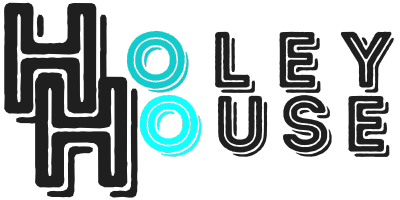Untangling the Loyalty Bonds, Silence Rules, and Generational Wounds That Were Never Yours to Carry
Family is supposed to be home. Family is supposed to be safe. Family is supposed to be your first mirror, your first love, your first community.
For survivors of incest trauma, family is rarely any of those things.
Instead, family becomes:
- the source of confusion
- the keeper of secrets
- the enforcer of silence
- the protector of the abuser
- the judge, jury, and executioner of the survivor
- the system that teaches you your pain is inconvenient
- the place where your truth is too heavy to hold
- the arena where loyalty is weaponized
- the environment where the patterns began
Here, we’ll learn about the most complicated layer of trauma healing:
Facing the truth about the family system you were raised in, and deciding how much of that system you want to keep carrying.
We’ll explore the three major areas:
- Understanding Your Family System
Navigating Family Relationships
Creating Your Own Path
This will require gentleness. It’ll require honesty. And it’ll require compassion for the child you once were. The child who was trapped in a system that would rather protect its image than protect you.
UNDERSTANDING YOUR FAMILY SYSTEM
Your family’s reaction was never a reflection of your worth. It was a reflection of their wounds.
Survivors often internalize their family’s denial or minimization as proof that:
- “It must not have been that bad.”
- “Maybe I misunderstood.”
- “I must be the problem.”
- “I’m ruining the family.”
- “I shouldn’t talk about this.”
But your family’s behavior doesn’t reveal the truth about your trauma. It reveals the culture and conditioning of your family system.
Let’s break down the most common dynamics.
Why Families Deny, Minimize, or Blame the Survivor
This is one of the most painful realities survivors face.
Families often:
- deny the abuse
- minimize the abuse
- blame the survivor
- protect the abuser
- rewrite history
- accuse the survivor of lying
- deflect responsibility
- demand silence
- stay “neutral” (which is still denial)
Why?
- Because acknowledging the truth means:
- admitting the family failed to protect a child
- confronting their own complicity
- shattering the illusion of family identity
- facing their own abuse history
- risking social or cultural consequences
- destabilizing the family hierarchy
Your truth threatens the system, not because it’s wrong, but because it’s true.
Family denial is not about you.
It’s about their inability to face themselves.
Scapegoating & the Golden Child Dynamic
Incest rarely occurs in a vacuum. It exists inside a dysfunctional family system with roles assigned long before you were born.
The two most common roles are:
The Scapegoat
The survivor is often cast as:
- the problem
- the troublemaker
- the overly emotional one
- the liar
- the unstable one
- the one who “can’t let things go”
The scapegoat becomes the lightning rod for everything the family refuses to face.
The Golden Child
The abuser or a sibling may be:
- idealized
- praised
- protected
- elevated
- excused
- admired
This child (or adult) reinforces the family’s illusion of normalcy.
The scapegoat tells the truth. The golden child protects the lie.
Neither role is accidental. They maintain the family’s equilibrium.
The Role of the Non-Offending Parent
This is the wound that cuts deepest. The betrayal behind the betrayal.
Why didn’t they protect you? Why didn’t they believe you? Why didn’t they leave? Why didn’t they save you?
Here’s the painful truth:
Non-offending parents often:
- minimize to avoid responsibility
- deny to preserve the family
- freeze due to their own trauma history
- dissociate from the truth
- feel powerless
- fear financial or social fallout
- prioritize the abuser
- rely on the abuser emotionally
- avoid conflict to feel safe
- collapse under guilt
Their failure was not because you weren’t worth protecting. It was because they were not capable, emotionally, psychologically, or developmentally.
And that failure still hurts. Deeply. Righteously. Rightfully.
Generational Cycles of Silence and Abuse
Incest often repeats across generations because:
- trauma goes unaddressed
- silence is normalized
- shame is inherited
- abuse is defended
- loyalty is weaponized
- roles are assigned
- dismissiveness is a pattern
- boundaries are nonexistent
- emotional neglect is the norm
You are not breaking a small habit. You are breaking a generational curse.
And doing so requires strength most people can’t even comprehend.
NAVIGATING FAMILY RELATIONSHIPS
Healing means choosing your relationship to your family. Not accepting the one you were given.
Survivors often feel trapped between:
- wanting connection
- wanting truth
- wanting safety
- wanting to be believed
- wanting distance
- wanting closure
- wanting identity
This section gives you tools to navigate what comes next.
Deciding Whether to Confront or Stay Silent
There is no “right” answer. Both come with risks. Both come with consequences. Both require emotional preparation.
Confrontation may bring:
- clarity
- validation
- further denial
- escalation
- deflection
- blame
- distance
- emotional fallout
Silence may bring:
- protection
- emotional distance
- grief
- unspoken truth
- internal conflict
Your job isn’t to prove your trauma happened. Your job is to protect your peace.
Confront if it empowers you. Stay silent if it safeguards you.
Your choice is valid either way.
When Going No Contact Becomes Necessary
No contact is not rebellion. No contact is not punishment. No contact is not “giving up.”
No contact is:
- a boundary
- a safety measure
- an act of self-protection
- a reclamation of power
- a declaration: “I deserve better than this.”
Reasons survivors choose no contact include:
- ongoing denial
- gaslighting
- emotional manipulation
- loyalty demands
- continued relationship with the abuser
- disrespect
- minimizing trauma
- unsafe dynamics
- retraumatization
- boundary violations
No contact doesn’t make you ungrateful. It makes you healthy.
Managing Guilt, Grief, and Loyalty Conflicts
These are some of the heaviest emotions survivors carry.
Guilt
Because you were conditioned to meet everyone else’s needs first.
Grief
For the family you never had. For the childhood that was stolen. For the parent who failed you.
Loyalty Conflicts
Because cultural, religious, or emotional conditioning taught you to put family above self.
Healing means recognizing:
- loyalty without reciprocity is bondage
- guilt is a conditioned response, not truth
- grief is the doorway to healing
- you are allowed to prioritize your well-being
- you do not owe access to those who harmed you
You can love your family and still protect yourself from their dysfunction.
Surviving Family Gatherings and Holidays
Holidays are war zones for survivors. Triggers everywhere. Pretenses everywhere. Memories everywhere.
To navigate them safely:
- plan grounding tools
- set time limits
- establish an exit strategy
- stay connected to safe people
- avoid conversations that cause harm
- hold your boundaries
- remind yourself: you are not that child anymore
It’s okay to skip holidays. It’s okay to leave early. It’s okay to choose peace over tradition.
You get to reclaim your calendar.
CREATING YOUR OWN PATH
Your family may not give you truth, safety, or love, but you can build these for yourself.
Family is not defined by blood. Family is defined by safety, truth, trust, and love.
This section helps you step fully into the life you’re building beyond the family system that wounded you.
Protecting Your Truth When Others Don’t Believe You
Your truth is not up for debate. Your trauma is not a group project. Your story is not contingent on family consensus.
Protect your truth by:
- refusing to explain yourself repeatedly
- grounding in your own memory
- limiting who has access to your vulnerability
- trusting your nervous system
- honoring the child you once were
Their disbelief does not diminish your truth. It reveals their limitations.
Breaking Generational Patterns of Abuse
You break the cycle every time you:
- tell the truth
- practice boundaries
- choose safety
- regulate your emotions
- name your needs
- protect children
- stop people-pleasing
- refuse to tolerate harm
- choose partners wisely
- prioritize healing
Breaking the cycle is not a single act. It is a lifetime of micro-choices.
Each one changes the future.
Building a Life Beyond Your Family Story
You are not who your family taught you to be. You are not defined by their dysfunction. You are not destined to repeat their patterns.
Building a life beyond your family story means:
- surrounding yourself with emotionally healthy people
- building stability
- cultivating joy
- learning your preferences
- exploring identity without fear
- relaxing into self-trust
- choosing love consciously
- becoming your own protector
Your family story is your origin. Not your destiny.
Creating a Chosen Family of Safety
The most healing relationships survivors experience are often not biological. They are chosen.
Chosen family members:
- believe you
- protect your truth
- respect your boundaries
- honor your pace
- accept your whole self
- celebrate your healing
- offer consistency
- show emotional responsibility
- love without conditions
You deserve a family that sees you. You deserve people who choose you. You deserve relationships that feel like safety.
And you are allowed to create that, starting now.
THE FREEDOM TRUTH
You were not born to carry your family’s shame. You were not made to uphold their secrets. You were not destined to inherit their wounds.
You were born into a story you did not choose, and now you are writing the ending they never could.
Honor your courage, your clarity, and your right to redefine what family means.
When you’re ready, your journey continues in Healing Tools, Skills & Daily Practices.


0 Comments